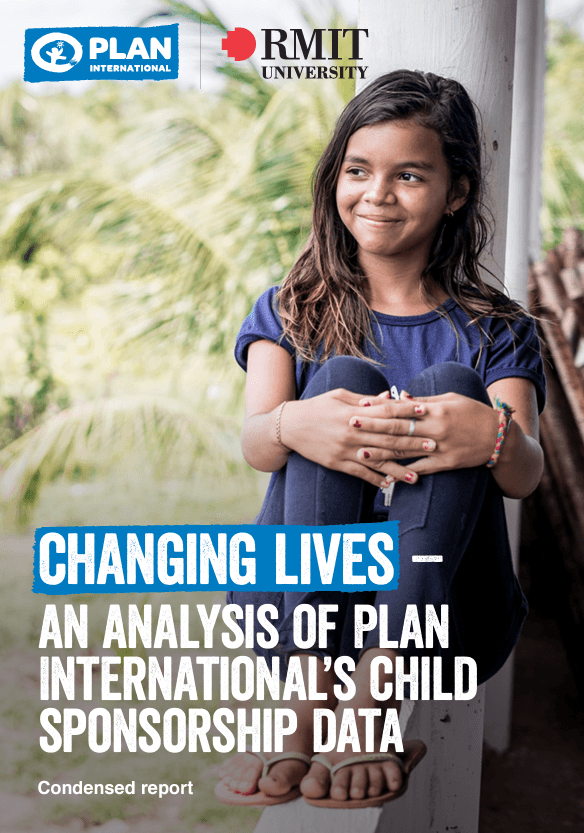Changing Lives 2019: An analysis of child sponsorship data
9 July 2019This is the first study that comprehensively uses the complete dataset of 12 million surveys for a full-scale, independent analysis of child sponsorship.

Child sponsorship has been a foundation of Plan International’s work since our beginnings. We currently engage with 1.4 million sponsored children in 48 countries through sponsorship activities, communications and programmes.
Back in 2006 we began to record the annual surveys that are conducted with all sponsored children. Since then, we have generated a unique and vast dataset from more than 12 million surveys conducted among 2.7 million sponsored children.
Introduction
Child sponsorship has been a foundation of Plan International’s work since our beginnings. We currently engage with 1.4 million sponsored children in 48 countries through sponsorship activities, communications and programmes.
Back in 2006 we began to record the annual surveys that are conducted with all sponsored children. Since then, we have generated a unique and vast dataset from more than 12 million surveys conducted among 2.7 million sponsored children.
Through previous studies we sought to assess the influence of child sponsorship, although these were limited in different ways.
With this study we wanted to satisfy four aims:
- To create reliable and objective evidence on the influence of our sponsorship model on development outcomes for sponsored children and communities –such evidence will be invaluable to the work of Plan International staff.
- To fill a gap in a field where rigorous empirical research on the influence of child sponsorship is scarce – this is despite the widespread use of sponsorship programmes by international nongovernmental organisations (NGOs).
- To test the relevance of our sponsorshiprelated work to the 2030 Sustainable Development Goals, as well as to highlight gaps in our approaches.
- To use our huge child sponsorship dataset more to inform our work, track our progress, and to ensure we are accountable both to our sponsored children and communities, and to the development sector more widely.
Working with RMIT University
To these ends, we commissioned RMIT University to conduct a quantitative study of the influence of child sponsorship. The research team probed the impact of Plan International’s child sponsorship model on sponsored children and communities.
It also studied different groups of children, including comparing girls and boys, children living with a disability, and children in different locations such as rural or urban settings and conflict-affected countries.
This report presents a condensed version of the full study findings by RMIT University.
It also offers our responses to those findings, in which we see particular relevance for sponsorship operations, the programmes and influencing work that we do in communities, and marketing and fundraising activities.
This is the first study that comprehensively uses the complete dataset of 12 million surveys for a full-scale, independent analysis of child sponsorship.
Download options
Report (English)
2.85 mb
report (Espanol)
2.86 mb
Report (Francais)
2.90 mb
Categories: About Plan International, Early childhood development, Education


